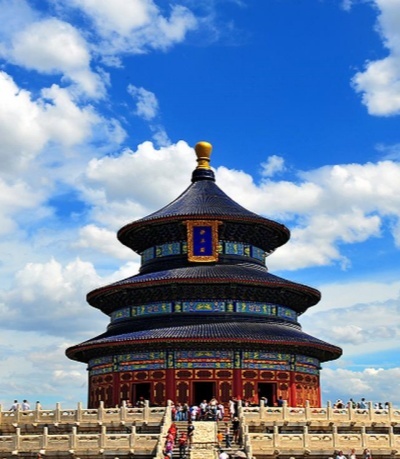- Home
- Tour Packages
- Destination
- About Us
- Contact
- Reviews
- Travel Guide
-
-
-
Must-Go Destination Travel Guides
- Yunnan
- Guizhou
- Pingyao
- Hangzhou
- Guangzhou
- Guilin
- Chongqing
- Datong
- Huangshan
- Xiamen
-
-
-
- Customize Your Trip
Email:[email protected]
Email:[email protected]
Just China Tours, Just For You!
Xi'an Small Wild Goose Pagoda: Historic Buddhist Landmark
- Home
- Xi’an Small Wild Goose Pagoda: Historic Buddhist Landmark
Nestled in the heart of Xi'an, the Small Wild Goose Pagoda stands as a testament to China's rich Buddhist heritage, often overshadowed by its more famous counterparts. This architectural marvel, known locally as Xiǎoyàn Tǎ, offers visitors a unique glimpse into the Tang Dynasty's cultural and spiritual landscape. It is a significant historical and cultural site located in the Jianfu Temple complex in Xi'an, Shaanxi Province. Built during the Tang Dynasty in 707 AD, this pagoda stands at 43.3 meters (142 feet) and features a unique architectural style that reflects the era's Buddhist influences.
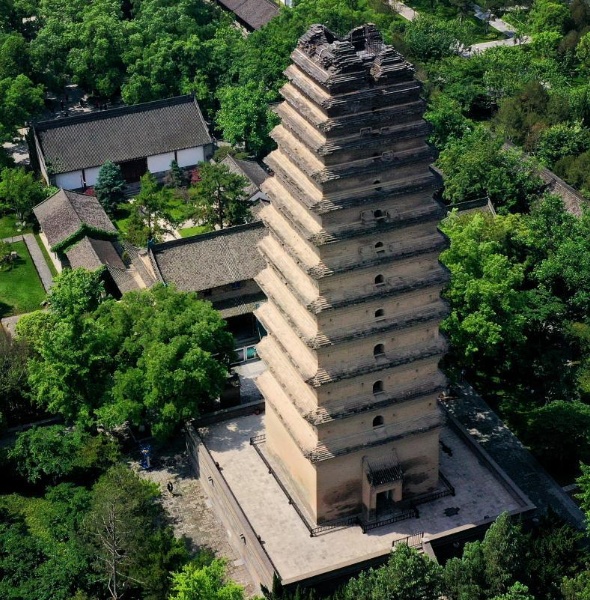
Small Wild Goose Pagoda
Built in 707 AD, the Small Wild Goose Pagoda has weathered centuries of change, including numerous earthquakes. Its resilience is not just a testament to Tang Dynasty engineering but also a metaphor for the enduring nature of Buddhist teachings in China. Unlike many ancient structures, this pagoda has a fascinating quirk - it has developed a visible lean over time, earning it the nickname "The Leaning Tower of Xi'an".
Architectural Ingenuity of Small Wild Goose Pagoda
Standing at 43.3 meters (142 feet) tall, the pagoda's design is a masterclass in Tang Dynasty architecture. Its square base and hollow interior are not just aesthetic choices but clever engineering solutions that have contributed to its longevity. The narrow staircases within invite the adventurous tdo ascend, offering a physical journey that mirrors the spiritual ascent in Buddhist philosophy. The structure is adorned with intricate carvings and decorative elements that highlight the artistry of the Tang Dynasty.
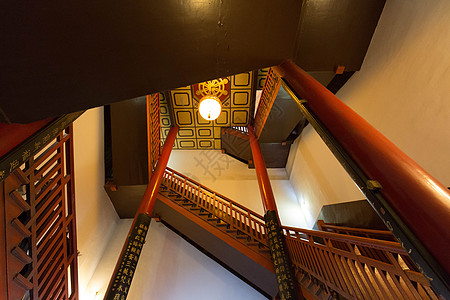
Architectural Ingenuity
While many visit for its architectural beauty, the Small Wild Goose Pagoda's true significance lies in its original purpose. It was built to house Buddhist scriptures brought back from India by the monk Yi Jing. This makes it not just a religious monument, but a vital link in the chain of knowledge transfer that shaped Chinese Buddhism.
The Soundless Bell
One of the pagoda's most intriguing features is its association with a peculiar acoustic phenomenon. Legend has it that when the pagoda was struck by lightning during the Ming Dynasty, it developed a crack that would "heal" itself. This self-healing crack is said to produce a mysterious ringing sound when the weather changes, earning it the name "The Pagoda That Rings Itself”.
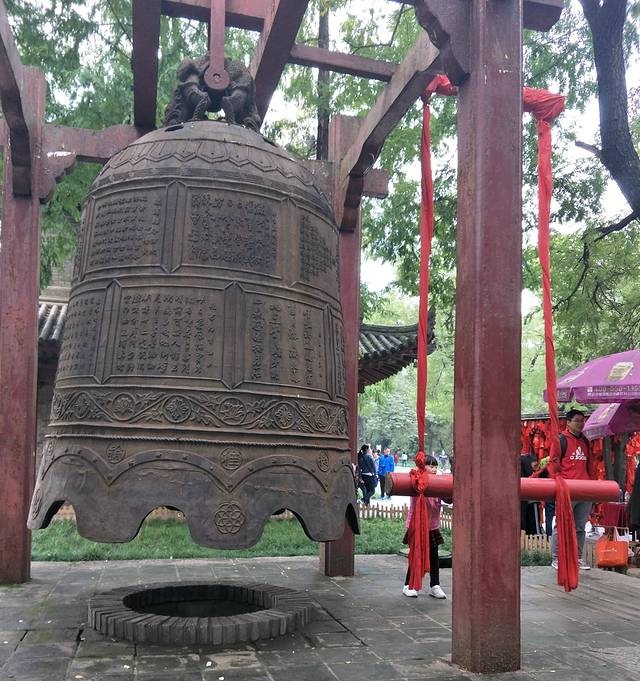
The Soundless Bell
Unlike its more touristy counterparts, the Small Wild Goose Pagoda offers a serene environment for contemplation. The surrounding Jianfu Temple complex provides a peaceful backdrop, allowing visitors to experience a slice of Tang Dynasty tranquility in the midst of modern Xi'an.
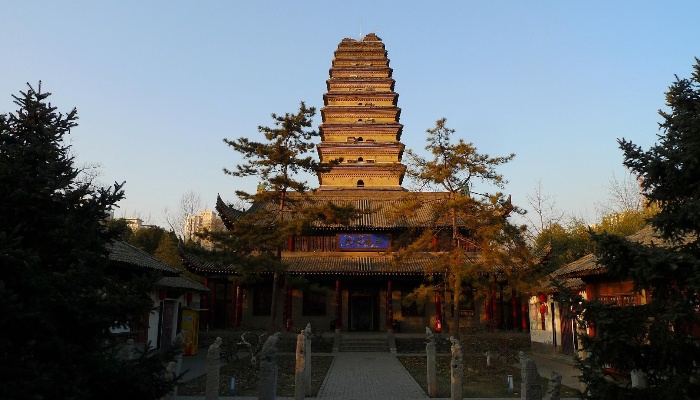
Tranquil Temple
Location and Access
The Small Wild Goose Pagoda is situated approximately 2 kilometers (1.2 miles) south of Xi'an's city wall. It is easily accessible via public transportation, including several bus routes and taxis. Visitors can take buses No. 21, 40, or 46 to reach the site conveniently.
Visiting Tips to Small Wild Goose Pagoda
- The pagoda is open year-round, but it is closed every Tuesday for maintenance.
- To avoid crowds, consider visiting early in the morning or later in the afternoon. The least crowded months are typically November to March, but be prepared for colder weather during this time.
- Opening hours are from 9:00 AM to 4:00 PM. Admission to the pagoda is free for general access; however, there is a fee of CNY 30 (approximately $5 USD) for those wishing to climb to the top of the pagoda.
- Combine your visit with a trip to the adjacent Xi'an Museum for a comprehensive historical experience.
Originally built to house Buddhist scriptures brought back from India by the monk Yi Jing, the Small Wild Goose Pagoda serves as an important symbol of Xi'an's historical significance as a center for Buddhism in China. The pagoda has survived multiple earthquakes over its long history, showcasing its resilience and architectural ingenuity.
Nearby Attractions of Small Wild Goose Pagoda
After visiting the Small Wild Goose Pagoda, consider exploring the nearby Xi'an Museum, which houses an extensive collection of artifacts from various dynasties. The museum offers insights into Xi'an's rich history as an ancient capital along the Silk Road.
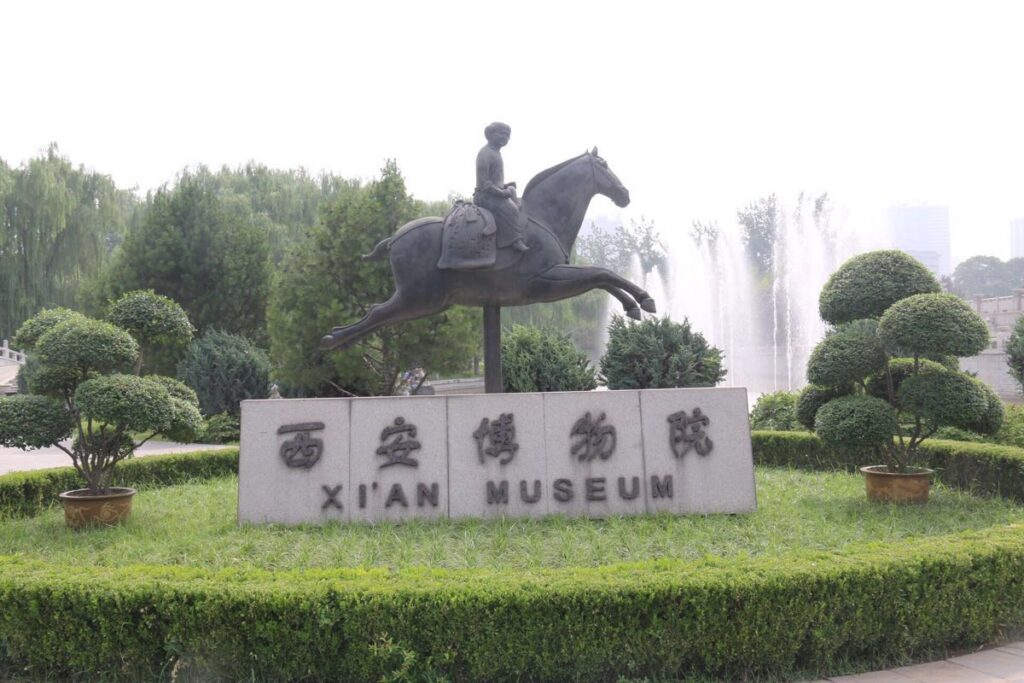
Xi' an Museum
The Small Wild Goose Pagoda may not have the grandeur of some of Xi'an's other attractions, but what it lacks in size, it makes up for in historical significance and spiritual ambiance. It stands as a silent sentinel, guarding centuries of Buddhist wisdom and offering visitors a unique window into China's rich cultural tapestry.
Visiting the Small Wild Goose Pagoda provides a unique opportunity to explore Xi'an's cultural heritage while enjoying a peaceful atmosphere away from more crowded tourist spots. Whether you're an architecture enthusiast or a history buff, this site promises an enriching experience that captures the essence of Tang Dynasty Buddhism in China.

